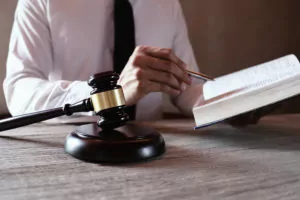 Civil forfeiture has become a hot button issue. Civil forfeiture happens when property is taken from you because of your suspected involvement with criminal activity, even in situations where you are never actually charged with or convicted of a crime.
Civil forfeiture has become a hot button issue. Civil forfeiture happens when property is taken from you because of your suspected involvement with criminal activity, even in situations where you are never actually charged with or convicted of a crime.
Unfortunately, Nevada law allows for civil forfeiture in certain circumstances, including in connection with property that was allegedly used to commit a technological crime. If your property is taken as a result of your suspected involvement in a tech crime, you could face very substantial financial loss. You need to fight this, and Nevada criminal lawyers can help you.
Forfeiture cases are complicated cases and not every attorney knows laws on civil or criminal forfeiture with enough in-depth knowledge of this area of law to provide you with the highest quality legal representation. You need to be represented by a lawyer with a legal background in forfeiture cases.
LV Criminal Defense has the experience you need. Give us a call as soon as your property has been taken or as soon as you have been accused of a technology crime so our legal team can help you to fight to keep your assets safe.
Nevada has a section of its criminal code that specifically sets forth the laws on Special Proceedings of a Criminal Nature. Within this Chapter of Nevada Revised Statutes, a section is specifically devoted to forfeiture of property that is connected to the commission of technological crimes.
The laws that are related to forfeiture in connection with tech crimes are found within N.R.S. 179.1211 through N.R.S. 179.1235. Within these statutes are rules on when property can be taken because of its connection to some type of tech crime. There are rules for both criminal forfeiture and civil forfeiture (civil forfeiture is the type of forfeiture that happens even absent a criminal conviction).
Nick Wooldridge has a long track record of representing clients accused of serious federal and state crimes in Nevada.
Under N.R.S. 179.12145, property includes money, securities, negotiable instruments, real property, an interest in real property, improvements to real property, tangible or intangible personal property, an interest in personal property, and conveyances including vehicles.
If a technological crime was alleged and there was property involved, a prosecutor can take action to preserve the property after an indictment, an information, or a hearing to provide notice to someone that his property could potentially be subject to forfeiture.
The prosecutor can ask for a restraining order or an injunction stopping actions from being taken with the property, can ask the court to appoint a receiver, or can ask the court to require the defendant to post bond. The court may grant the prosecuting attorney’s request if the prosecutor demonstrates by a preponderance of the evidence that some action is needed to protect property that could be forfeited.
In criminal forfeiture cases, the jury or court will determine what property will be forfeited upon conviction. Once the court has entered an order of forfeiture, the court can also order an injunction or any necessary actions to preserve the property, such as appointing a receiver. Once there is an order for a defendant to forfeit property in cases where criminal forfeiture occurs, the court will also order seizure of the property.
If property is to be seized under civil forfeiture rules, generally a civil action or proceeding must take place first. However, N.R.S. 179.1231 explains circumstances under which property can be seized without legal process as long as appropriate notice is given. Property can be seized without legal process occurring first:
When I initially met with Mr. Wooldridge, he took the opportunity to sit and go over my problem with me. He described details in my case which he found disturbing and explained why he I should have him on my side.
If an agency seizes property without process occurring first, the agency should begin civil forfeiture proceedings promptly.
Nevada criminal lawyers can provide representation when you have been accused of a technological crime. Our legal team will not only help you to fight to avoid criminal forfeiture, but will also help you to try to avoid conviction. We also have experience fighting for your right to keep or recover your property in civil forfeiture cases.
To find out more about how we can help you, give LV Criminal Defense a call as soon as your property has been taken, you’ve received notice of forfeiture, or you are under investigation for allegedly committing a criminal act.